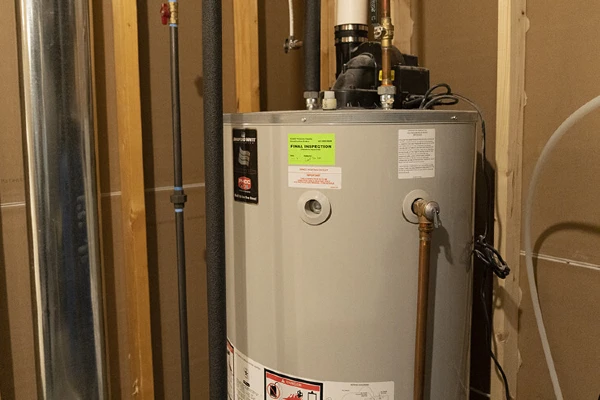Is a Water Heater an Appliance or ... Just a Water Heater?
While the distinction between a plumbing fixture or an appliance may not seem to matter, there are a number of situations where this classification can make a difference. Read on to learn more about the benefits of defining the status of your water heater and the reasoning behind it.

Is a Water Heater a Major Appliance?
An appliance is defined as a piece of equipment or machinery that is used to perform one or more household tasks, which describes a number of items in the home, including your dishwasher, washing machine, refrigerator, and stove. The question is: Is a hot water heater considered an appliance? Under most circumstances, a water heater is categorized as a plumbing fixture, but in certain situations, it is considered to be an appliance and it is important to ensure that all parties agree on the classification, including:
- When creating, or signing a rental lease
- When entering the value of a rental property on tax documents
- When entering the expenses for a rental property on tax documents
- When managing the appliance inventory on a rental property
- When purchasing homeowners insurance
- And more
Depending on the wording of your lease or insurance policy, how your water heater is defined will determine who is responsible for coverage, maintenance, or repairs, in the event of a breakdown, damage, or disasters such as a fire or flood. Be sure to clarify with all involved parties about whether or not your hot water heater is considered to be a major appliance or a plumbing fixture prior to signing any documents pertaining to your home or rental unit.
Water Heater Usage & Maintenance Tips
Use these tips to help to avoid most major repairs or damage to your home or contents, reduce your energy costs, and help to prolong the lifespan of your water heater, courtesy of the appliance experts at Mr. Appliance®:
Dial it down.
Check the temperature setting on your water heater and adjust it to about 49 degrees Celsius. While the default temperature setting is typically 54.5 to 60 degrees, dialing it back some can help to prevent scalding, while reducing your cost of energy by five percent or more.
Test the T&P valve.
The temperature and pressure relief valve is a safety feature that is designed to sense and relieve excessive pressure or heat from your hot water tank, and it should open automatically as needed to eliminate the risk of an explosion. Test the valve on an annual basis, as per the recommendations and directions in your owner's manual.
Perform a mini-flush.
Sediment buildup in the bottom of the tank can lead to rust and corrosion, but a periodic mini-flush of one to two gallons of water into a bucket can help to reduce the buildup and add years to the life of your tank.
A water heater is one of the most power-hungry appliances in the home.
Schedule Professional Appliance Repair Services Today!
The best way to ensure the efficient, reliable performance of the major appliances in your home, is with professional appliance repair and maintenance services from a trusted professional.


